Yelisavetgrad (now Kropyvnytskyy, Ukraine) was a city in the southwestern part of the Russian Empire, where there was a large Jewish population. In 1881, a pogrom occurred here, triggering first a wave of anti-Jewish violence, and then a large wave of emigration from Eastern Europe. The history of Jewish life in Yelizavetgrad reflects the developments of Judaism in Eastern Europe in the course of the 20th century.
Yelisavetgrad (now Kropyvnytskyj in the central part of Ukraine) was founded in 1754. The city was established at the fortress of St. Yelizaveta. In the 1780s Yelizavetgrad lost its original military importance and gradually turned into a regional center of trade and commerce.
Yelisavetgrad was located on the territory of the so-called Settlement Arrayon. It was the territory in the west of the Russian Empire, which stretched from the Baltic Sea to the Black Sea. Only on this territory the Jewish population was allowed to live and work permanently between the end of the 18th and the beginning of the 20th century. The conditions loosened partially under the reign of Tsar Alexander II. After his assassination, and the subsequent anti-Jewish sentiment in the country, the living conditions of Jews were again restricted.
The population of Yelizavetgrad, as in other parts of Kherson Governorate, was very diverse. Only about half of the inhabitants were born in the city, the rest came from neighboring regions. Apart from Jews, mainly Russians and Ukrainians lived here, but also Poles, Germans, Tatars and Greeks. Over the decades, the proportion of the Jewish population has increased several times. In 1795 Jews formed 17% of the population of Yelizavetgrad, in 1897 there were 8,073 Jews living here, which corresponded to 39% of the total population.
The majority of Yelizavetgrad Jews were engaged in trade. The Jewish population of Yelizavetgrad was mostly assimilated by the end of the 19th century and paid little attention to religious traditions.
In April 1881, Yelizavetgrad became the scene of a pogrom that unleashed a wave of anti-Jewish violence in the southwestern part of the tsarist empire. The event was connected with the assassination of Tsar Alexander II. Among the assassins was a Jewish woman. Because of this, the press wrote of a Jewish conspiracy. In the tsarist empire a state mourning was imposed and the usual Easter celebrations were forbidden. In Yelizavetgrad, rumors spread that the Jews were to blame for the ban and that there would be a pogrom on Easter.
The alarmed Jewish population of Yelizavetgrad asked the authorities for protection. Thanks to the deployed military units, Easter passed quietly. Only when the military left the city on April 15 did the violence that had been expected for weeks break out. The cause was said to be an incident in a reopened pub. One of the guests allegedly began singing Christian songs as a provocation to the Jewish owner. As a result, he was expelled from the pub and taken out into the street. The residents of Yelizavetgrad, who were watching this scene, began to shout: "The Jews are beating ours! Beat the Jews!". This was the beginning of the Yelizavetgrad pogrom. Crowds stormed Jewish businesses and homes. Rather than physical violence against Jews, it was about targeted looting and destruction of their property. The robbery was also joined by peasants from neighboring villages, who arrived for this purpose with empty wagons.
The pogrom in Yelisavetgrad ended on the evening of April 16. In its course, 418 houses and 290 stores were devastated. Three people died - two of them were the looters themselves, who died of alcohol poisoning. Further anti-Jewish riots spread along the railroad line. The violence, which continued until 1882, led to a massive wave of emigration of Jews*from Eastern Europe.
At the turn of the century, Jelisavetgrad experienced an economic and cultural boom, to which the local Jewish population also contributed significantly. In 1897, one of the first streetcar lines in Tsarist Russia was put into operation in Yelizavetgrad. The cost was borne by the Jewish merchant and patron Lev Isralievich Brodskyj. Between 1895 and 1897 the synagogue was rebuilt in neo-Moorish style. The construction was led by the architect Aleksander Lishnevsky, who came from a Yelisavetgrad Jewish family.
In the spring of 1919, during the Russian Civil War, a pogrom occurred in Yelizavetgrad. The rebels against the Soviet power murdered more than 2,000 Jews*. The victory of the Bolsheviks and the establishment of the Soviet Union brought Yelizavetgrad several name changes, among others. The city was renamed after Soviet officials - the "City of Saint Yelisaveta" became Zinovievsk in 1924, Kirovo in 1934, and finally Kirovograd in 1939. In 1926 Jews*Jews formed 30% of the total population of the city.
The Second World War came to what was then Kirovograd in the summer of 1941. On August 14, the city was occupied by the Wehrmacht. During the mass shootings, German and Ukrainian units shot more than 15,000 Jewish residents* of Kirovograd. Among the victims of the Holocaust was 15-year-old Josif Butovetsky. Like Anne Frank, he kept a diary during this time. Butowetzkyj's notes became a testimony to the crimes committed in the Reich Commissariat of Ukraine.
The conditions for the restoration of Jewish religious and cultural life were limited in the postwar period. Its center, the confiscated synagogue, remained closed for a long time. It was only with Ukrainian independence that Kirovograd's Jewish community was able to become active again. In 1991 the synagogue came back under its administration. In the same year the memorial to the victims of the Holocaust was inaugurated. In 1998, the Museum of Elizavetgrad Jews was opened in part of the synagogue, and since 2002 the non-profit association Hesed Shlomo has also been operating there. The Jewish community of today's Kropyvnytsky counts more than 1,000 members.
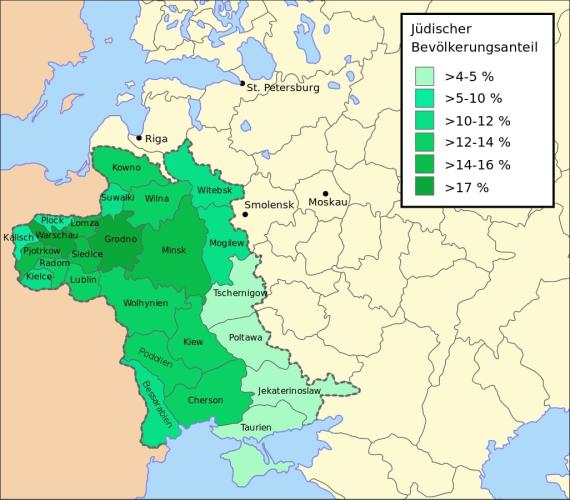
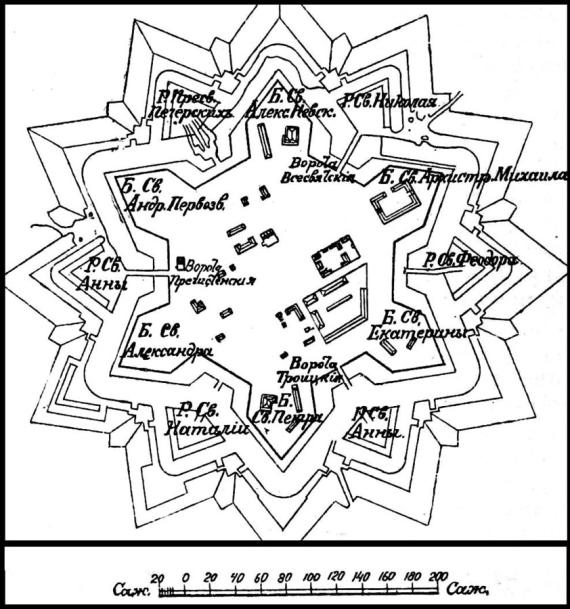

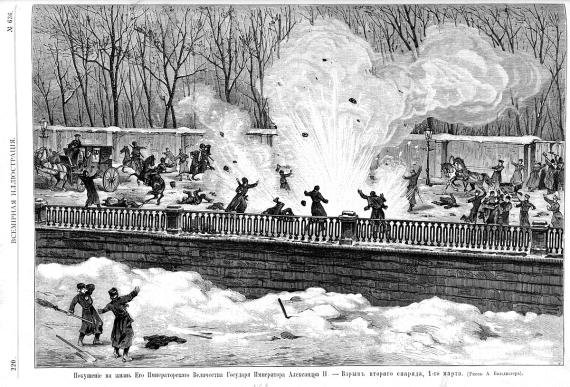
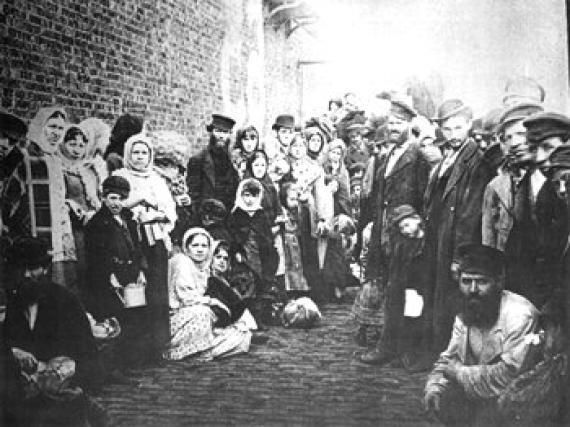
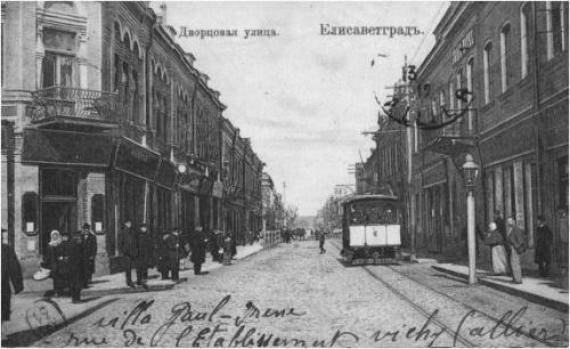
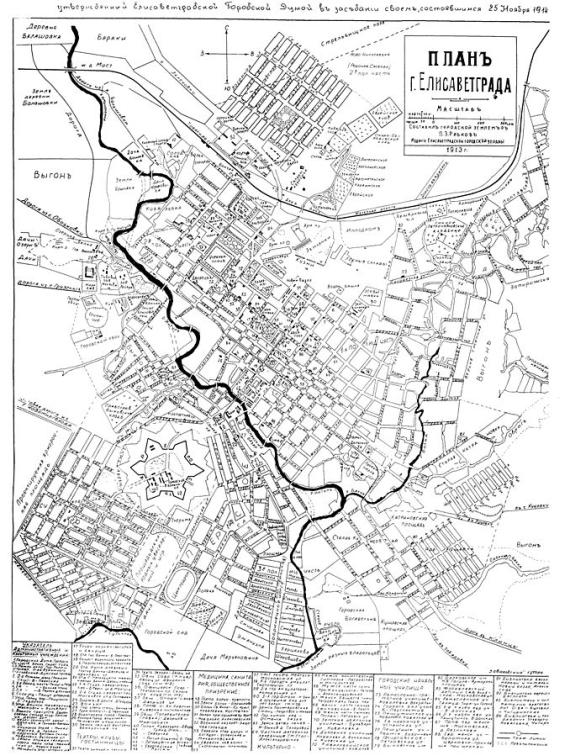
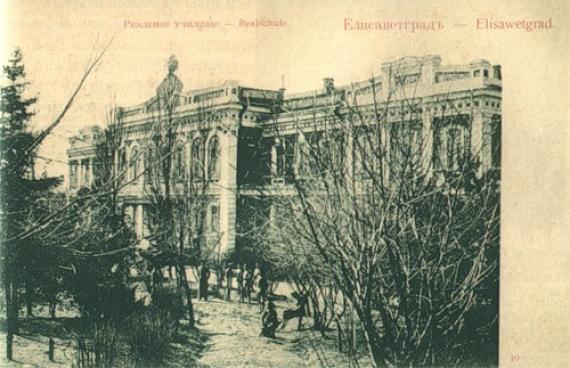
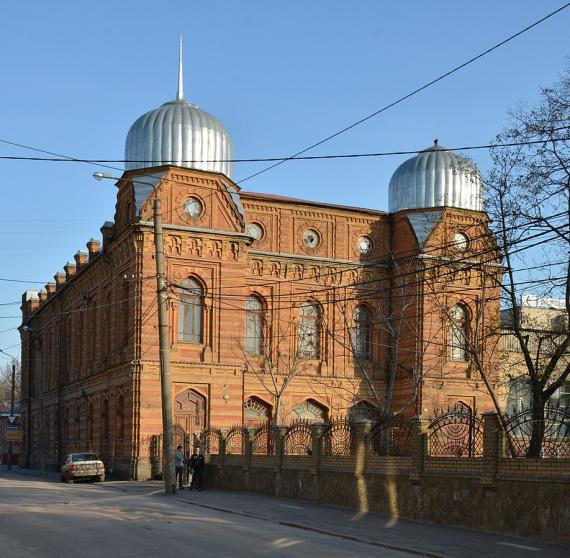
https://eleven.co.il/diaspora/communities/12088/ (letzter Zugriff am 15.5.19)
http://intellekt-vivo.narod.ru/arxitektor.html (letzter Zugriff am 15.5.19)
http://jew-observer.com/otzvuk-tragedii/kropivnickij-evrei-shoa/ (letzter Zugriff am 15.5.19)
http://www.yivoencyclopedia.org/article.aspx/Pale_of_Settlement (letzter Zugriff am 15.5.19)
http://www.yivoencyclopedia.org/article.aspx/Ukraine (letzter Zugriff am 15.5.19)
http://www.yivoencyclopedia.org/article.aspx/Pogroms (letzter Zugriff am 15.5.19)
https://www.facebook.com/hesedShlomoKr/ (letzter Zugriff am 15.5.19)
http://jew-observer.com/otzvuk-tragedii/kropivnickij-evrei-shoa/ (letzter Zugriff am 15.5.19)
http://kjc.org.ua/ru/history/ (letzter Zugriff am 15.5.19)
http://kjc.org.ua/ru/habbad-kirovograd/sinagoga/ (letzter Zugriff am 15.5.19)
http://old.uc.kr.ua/holokost/ (letzter Zugriff am 15.5.19)
https://our-travels.info/ost/Goroda/Ukraine/Kirovograd/Kirovograd-muz.php (letzter Zugriff am 15.5.19)
https://ujew.com.ua/10-faktov-o-evreyah-kirovograda (letzter Zugriff am 15.5.19)
https://ujew.com.ua/objects/kirovogradskaya-oblast/kirovograd/kirovogradskaya-bol-shaya-horal-naya-sinagoga5 (letzter Zugriff am 15.5.19)
https://ujew.com.ua/objects/kirovogradskaya-oblast/kirovograd/muzej-evrei-elisavetgrada-9 (letzter Zugriff am 15.5.19)
https://ujew.com.ua/objects/kirovogradskaya-oblast/kirovograd/pamyatnik-evreyam-zhertvam-fashizma-7 (letzter Zugriff am 15.5.19)
https://ru.wikipedia.org/wiki/%D0%9B%D0%B8%D1%88%D0%BD%D0%B5%D0%B2%D1%81%D0%BA%D0%B8%D0%B9,_%D0%90%D0%BB%D0%B5%D0%BA%D1%81%D0%B0%D0%BD%D0%B4%D1%80_%D0%9B%D1%8C%D0%B2%D0%BE%D0%B2%D0%B8%D1%87 (letzter Zugriff am 15.5.19)
https://www.facebook.com/hesedShlomoKr/ (letzter Zugriff am 15.5.19)
https://eleven.co.il/diaspora/communities/12088/ (letzter Zugriff am 15.5.19)
http://intellekt-vivo.narod.ru/arxitektor.html (letzter Zugriff am 15.5.19)
http://jew-observer.com/otzvuk-tragedii/kropivnickij-evrei-shoa/ (letzter Zugriff am 15.5.19)
http://www.yivoencyclopedia.org/article.aspx/Pale_of_Settlement (letzter Zugriff am 15.5.19)
http://www.yivoencyclopedia.org/article.aspx/Ukraine (letzter Zugriff am 15.5.19)
http://www.yivoencyclopedia.org/article.aspx/Pogroms (letzter Zugriff am 15.5.19)
http://kjc.org.ua/ru/history/ (letzter Zugriff am 15.5.19)
http://kjc.org.ua/ru/habbad-kirovograd/sinagoga/ (letzter Zugriff am 15.5.19)
http://old.uc.kr.ua/holokost/ (letzter Zugriff am 15.5.19)
https://our-travels.info/ost/Goroda/Ukraine/Kirovograd/Kirovograd-muz.php (letzter Zugriff am 15.5.19)
https://ru.wikipedia.org/wiki/%D0%9B%D0%B8%D1%88%D0%BD%D0%B5%D0%B2%D1%81%D0%BA%D0%B8%D0%B9,_%D0%90%D0%BB%D0%B5%D0%BA%D1%81%D0%B0%D0%BD%D0%B4%D1%80_%D0%9B%D1%8C%D0%B2%D0%BE%D0%B2%D0%B8%D1%87 (letzter Zugriff am 15.5.19)
https://ujew.com.ua/10-faktov-o-evreyah-kirovograda (letzter Zugriff am 15.5.19)
https://ujew.com.ua/objects/kirovogradskaya-oblast/kirovograd/kirovogradskaya-bol-shaya-horal-naya-sinagoga5 (letzter Zugriff am 15.5.19)
https://ujew.com.ua/objects/kirovogradskaya-oblast/kirovograd/muzej-evrei-elisavetgrada-9 (letzter Zugriff am 15.5.19)
https://ujew.com.ua/objects/kirovogradskaya-oblast/kirovograd/pamyatnik-evreyam-zhertvam-fashizma-7 (letzter Zugriff am 15.5.19)
Add new comment